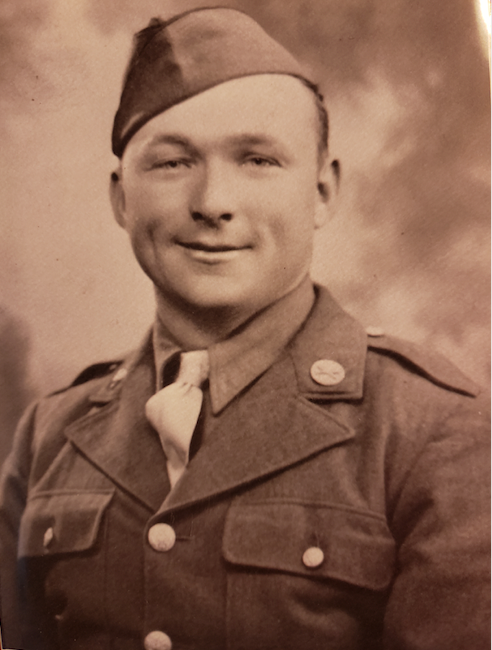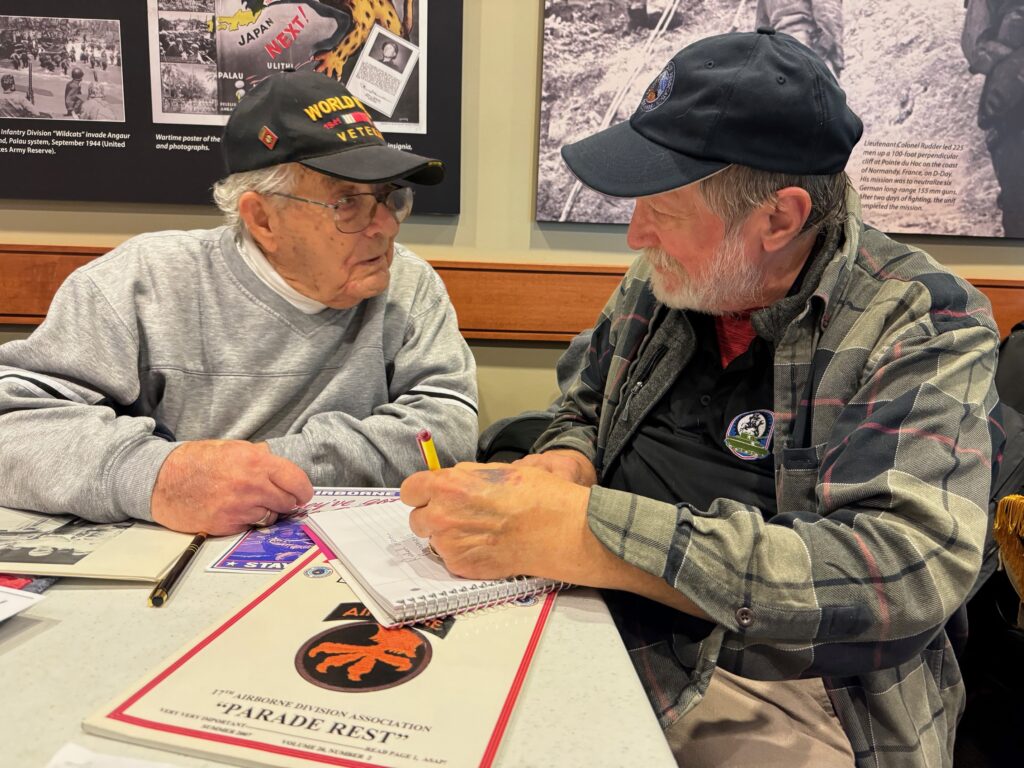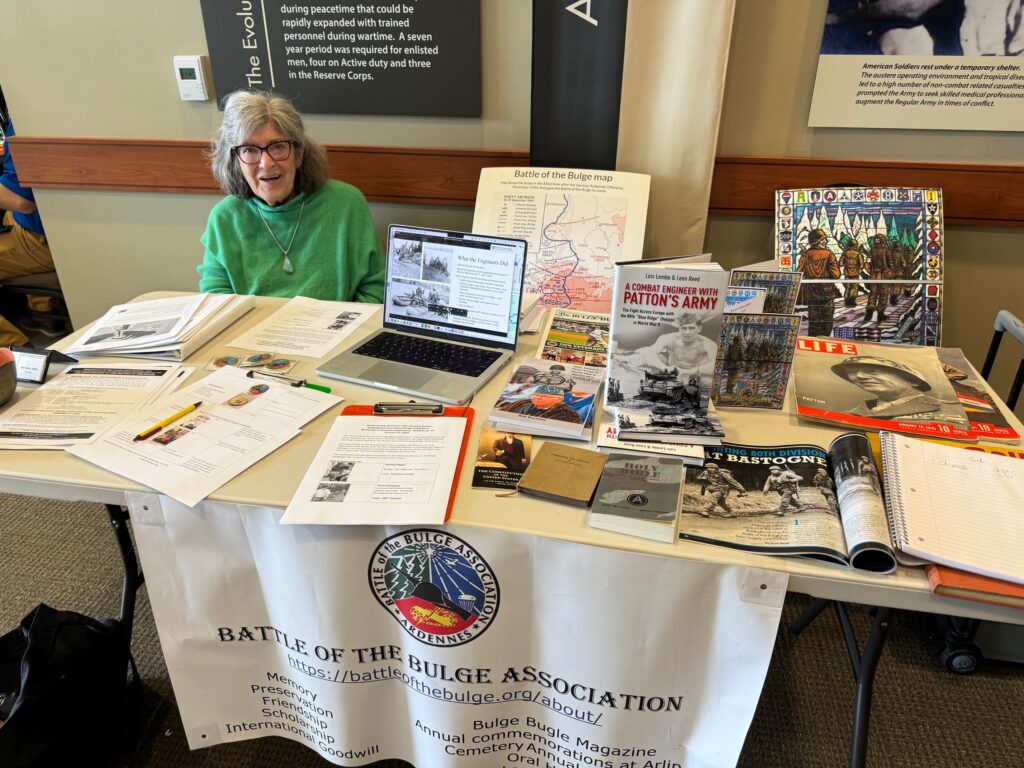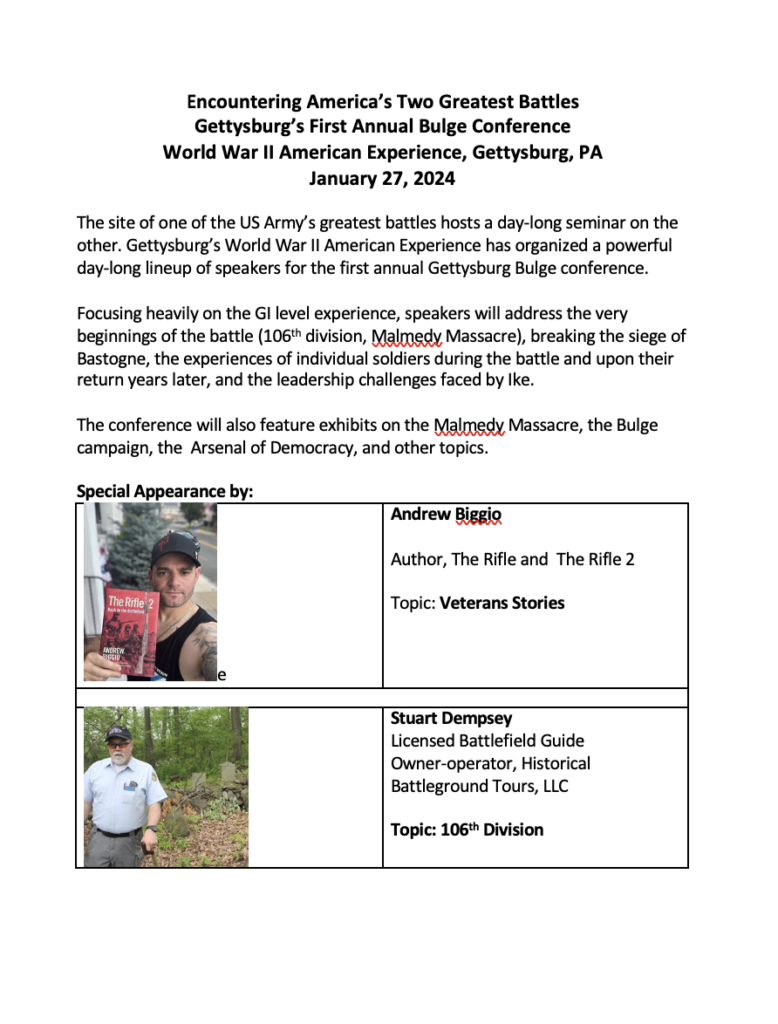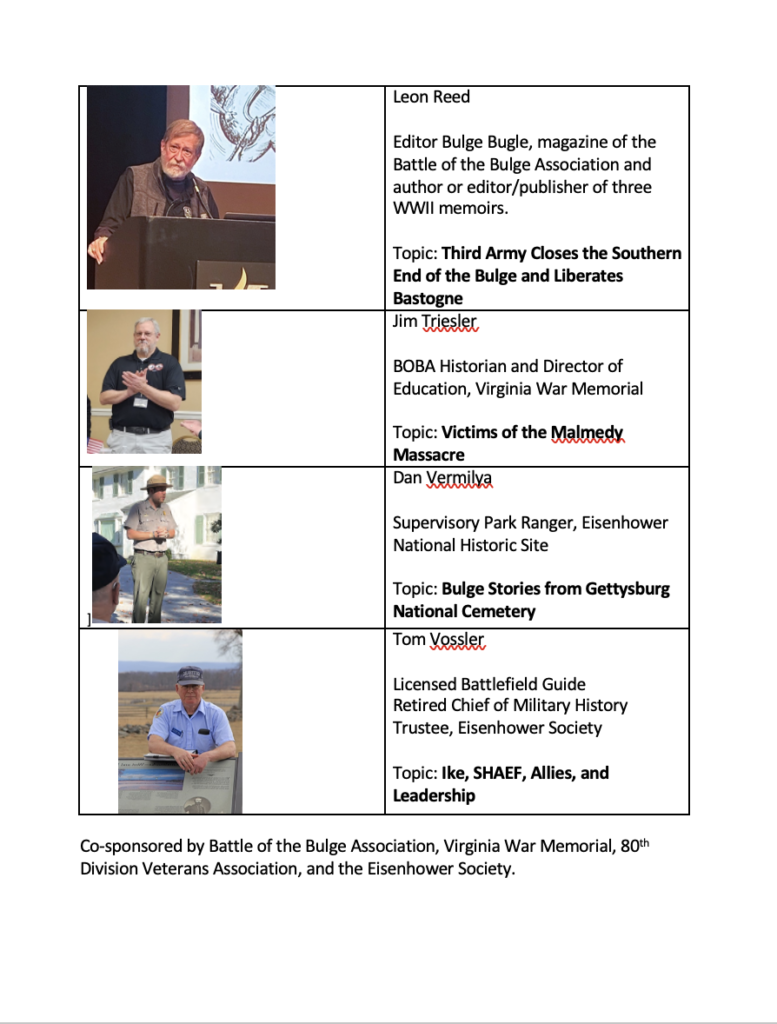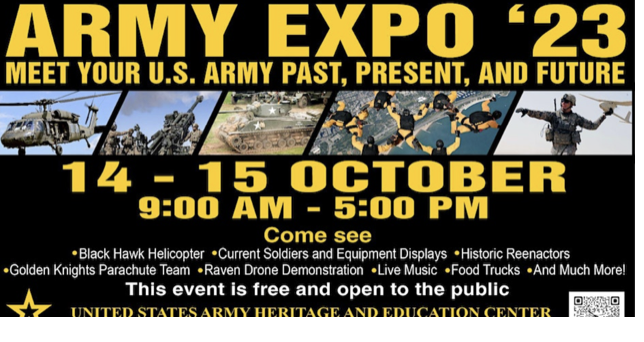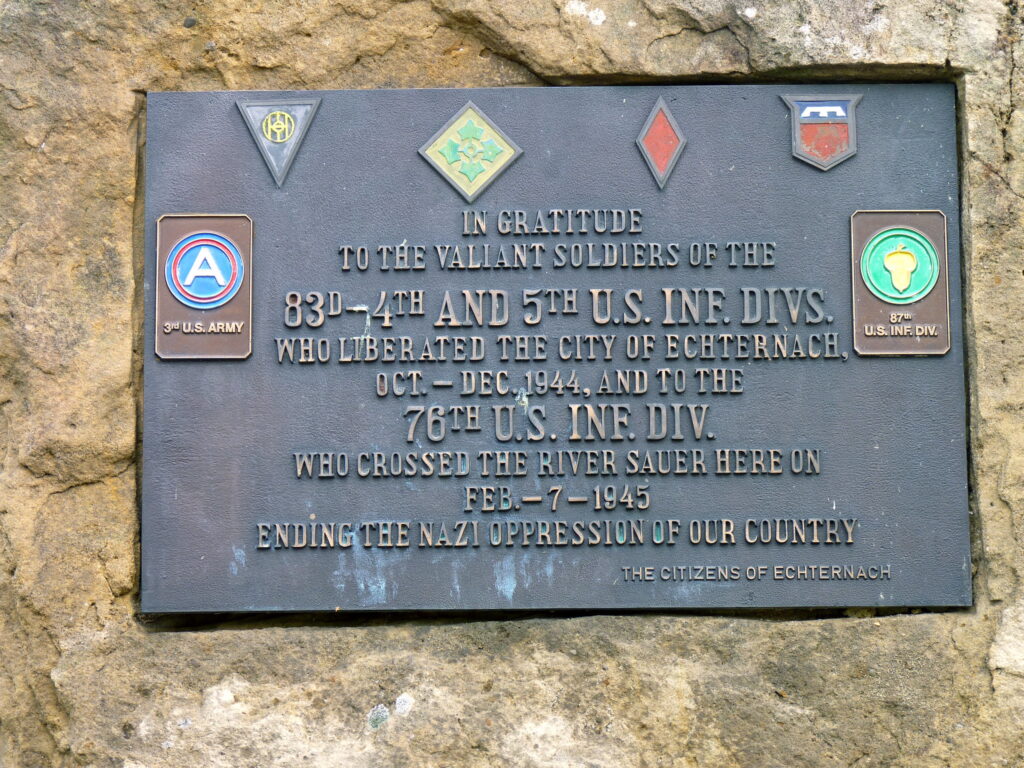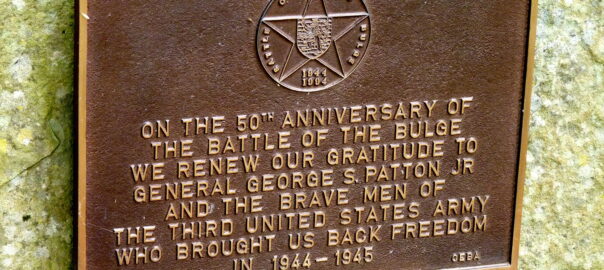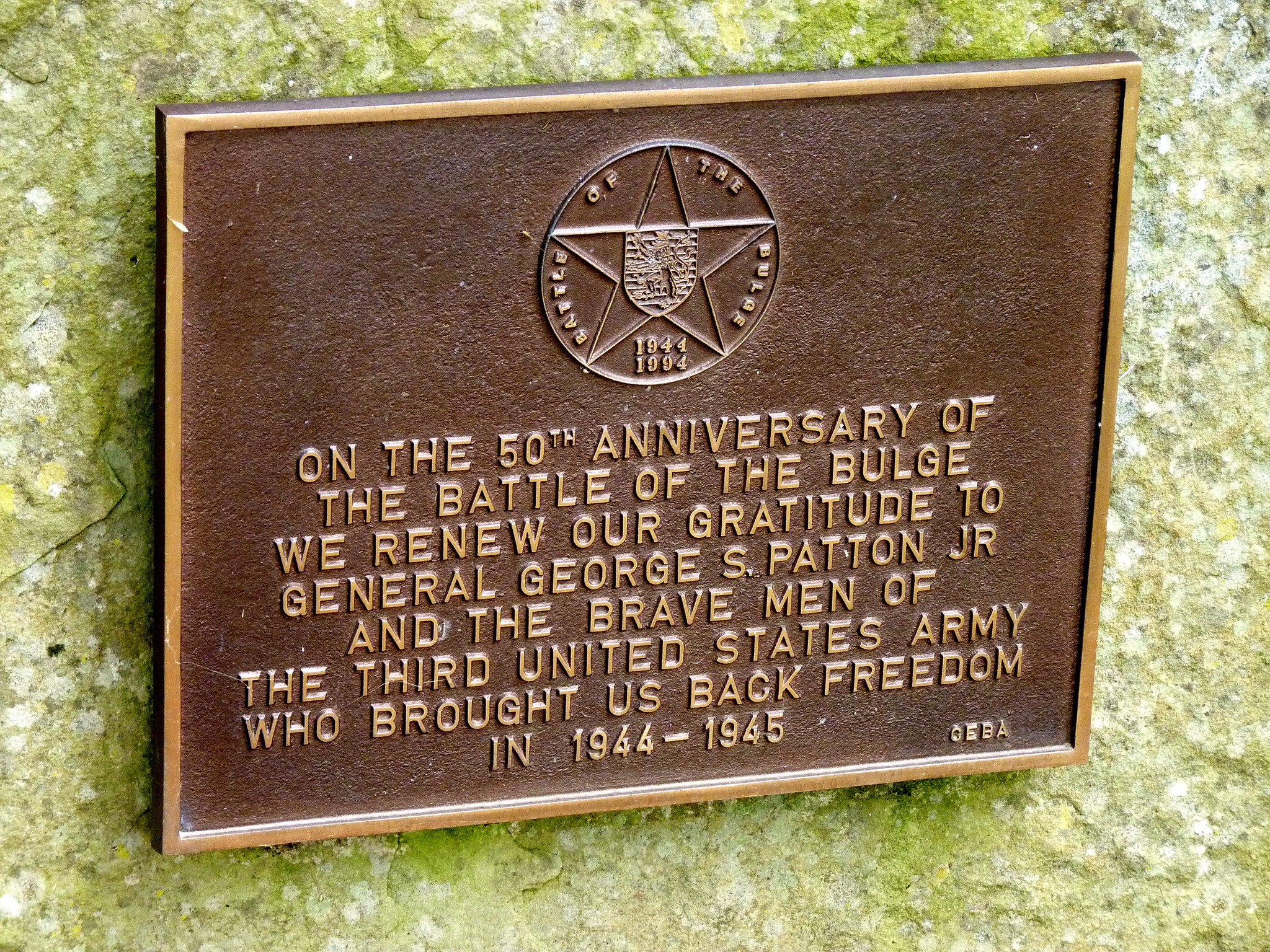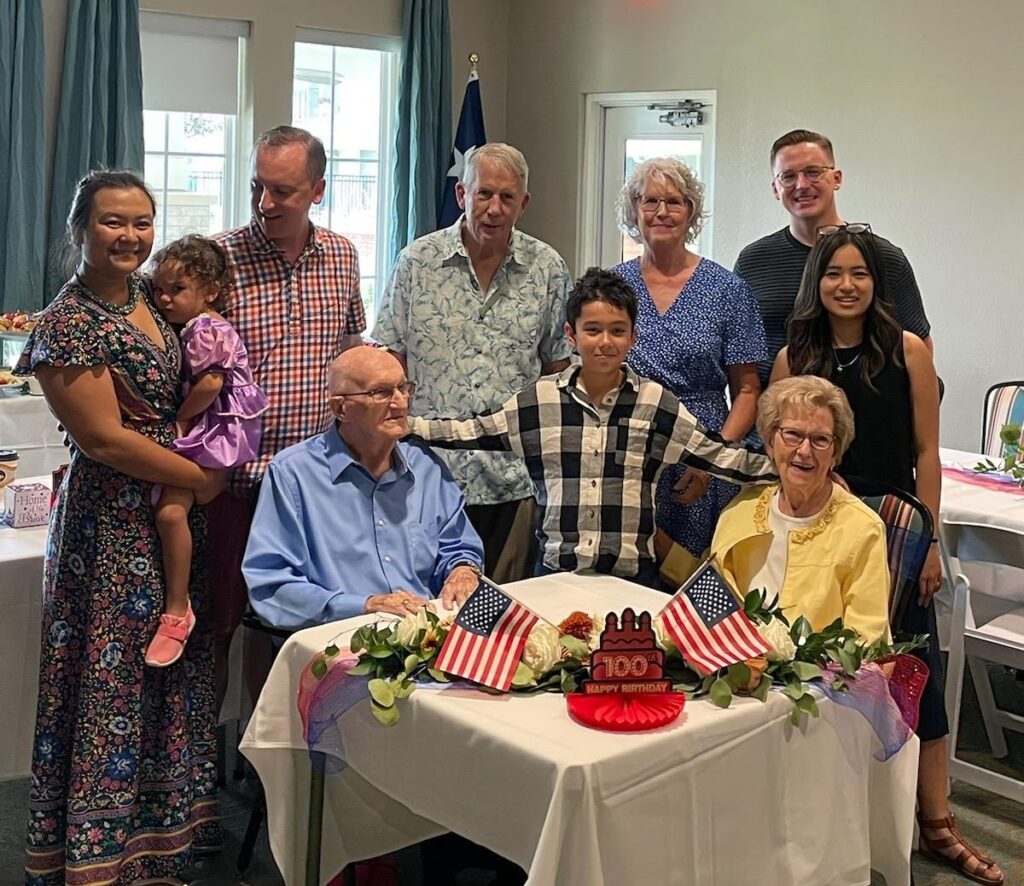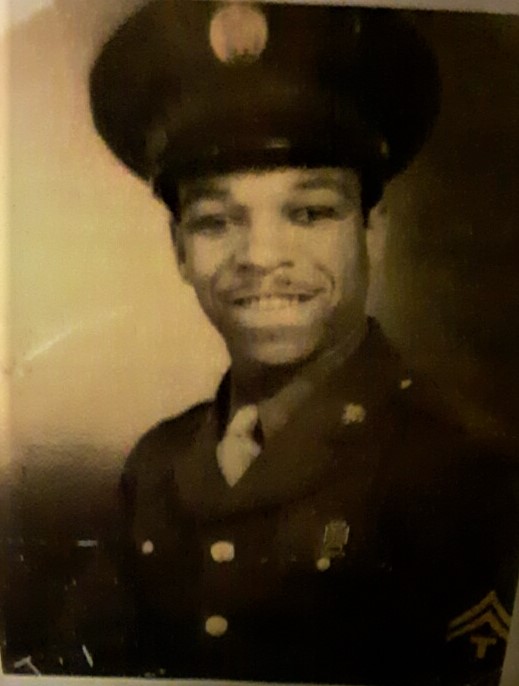The following story was found in the records of BOBA’s Ohio Buckeye chapter. The chapter recently closed but the son of the last president thought to contact us to see if we want to have the records sent to us. We are making an arrangement with Jim Triesler to have the Virginia War Memorial serve as the archive of VBOB/BOBA records.
*******
Christmas Peace
A True Story by Fritz Vincken,
Found in the papers of the Ohio Buckeye Chapter, VBOB
More than half a century ago, on Christmas Eve 1944, in the middle of the battle about the Ardennes, mother and I had unexpected guests.
On that Holy Eve the infantry division No. 256, having received replacements from Bohemia was fighting left on the Rhine bank. Its six battalions had been regrouped. In the New Year Night they once more attacked the Maginot Line from the area around Pirmasens under the code name ‘Nordwind.’ The casualties of that final German advance in the west are buried on the soldier cemetery at Bad Niederbronn (Alsace) and at Dahn (Palatinate).
At that time I was twelve years old and we were living in a small cottage in the Ardennes, near the Belgian border. Father had used this little house before the war when he had gone hunting on weekends. And when our hometown Aachen suffered more and more under the air raids, he sent us there. He himself was ordered to the 6 km distant border town Monschau for air raid protection. “In the forest you will be safe,” he said to me. “Take care of Mother. You are a man now.”
But one week ago Generalfeldmarschall von Rundstedt had started the last desperate German offensive and whenever I went to the door I heard the battle raging.
When there was a knock at the door on Christmas Eve, Mother quickly blew out the candle. Then she went to the door, I behind her. Outside, before the ghostly background of snow-covered trees stood two men with white steel helmets. The one addressed Mother in a language we didn’t understand and pointed to a third one who was lying on the snow. She conceived quicker than I that they were Americans.
Mother stood – her hands on my shoulders – unable to move. The men were armed and would have been able to force their way in. but they didn’t move and were begging only with their eyes. The wounded man in the snow was more dead than alive. “Come in,” Mother said finally. The soldiers carried in their comrade and put him on my bed. None of them spoke German. Mother tried with French and in this language one of the men was able to communicate to some extent
Before Mother took care of the wounded man, she said to me, “The fingers of both are totally stiff. Have them take off their jackets and the boots and go and get a bucket of snow.” Shortly after, she rubbed off their blue frozen feet with snow. The stocky, dark haired man, we heard, was Jim. His friend, tall and slender, was Robin. Harry was the wounded man who slept in my bed now. His face was as white as the snow outside. They had lost their unit and got lost in the forest trying to find the Americans, always anxiously watching out for the Germans. They were unshaved, but without their heavy coats they looked like tall boys. And Mother treated them accordingly.
“Go and bring Herman,” Mother said to me, “and also bring some potatoes.” This was a deep cutting change in our Christmas program. Herman was a fat cock (named after Hermann Goering, for whom Mother hadn’t any sympathy). He had been fed in the past few weeks in the hope that father would be home at Christmas.
While Jim and I helped in the kitchen, Robin took care of Harry, who had got a shot in his upper leg and was almost bleeding to death. Mother tore a sheet in stripes to bandage the wound.
Soon the smell of the baking cock filled the room. I was just about to lay the table when there was another knock. In the expectation of seing even more Americans, I opened without hesitation. Outside were four men in a uniform well known to me. German soldiers – Ours! I was paralyzed by the shock. Despite my youth, I knew the law. Whoever is hosting the enemy is committing treason. We all could be executed. Mother also showed fear. Her face was white, but she went out and said calmly: “Merry Christmas!” “We have lost our unit and want to wait until day comes,” explained the leader, a sergeant. “Can we stay with you? “Naturally,” mother said with the calmness of desperation. “You can also have a good warm meal and eat as long as something is available.”
The soldiers smiled while sniffing the good smell coming through the half open door. “But,” Mother continued energetically, “we have three more guests here, whom you are not likely to consider as friends.” Her voice was suddenly so strict. I had never hard her speaking in this manner. “Today is Holy Eve and there is no shooting.”
“Who is inside?” the sergeant asked brusquely. “Americans?” mother looked each one in the frost stiffened face. “Listen,” she said slowly, “you could be my sons and they in there too. One of them is wounded and is fighting for his life and his two fellows are lost and hungry like you. In this night,” she spoke to the sergeant and lifted her voice, “in this Holy Night we do not think of killing.”
The sergeant looked at her. For two, three endless seconds there was silence. Then Mother ended the uncertainty. “Enough talk,” she said and clapped her hands, “put your weapons there on the wood pile – and hurry before the others eat everything up.”
Dazed, the four soldiers put their weapons in the box of firewood in the aisle. Two pistols, three carbines, one light machine gun, and two bazookas. Meanwhile, Mother talked hastily with Jim in French. He said something in English and I saw with astonishment that the Americans also handed over their weapons to Mother.
As now the Germans and the Americans were standing shoulder to shoulder with embarrassment. Mother was in her element, smiling, looking for a place for each one to sit. We had only three chairs but Mother’s bed was large. There she placed two of the later arrivals next to Jim and Robin. Then she continued cooking without taking notice of the tense atmosphere. But Hermann didn’t get bigger and we had four eaters more.
“Quick,” she whispered to me, “go and et a few potatoes and some oat meal. The boys are hungry, and when the stomach rumbles one is easily irritable.” While I was plundering the store room, I heard Harry groaning. When I returned, one of the Germans had put on his glasses and was bending over the wounded soldier. “Are you an ambulance man?” Mother asked. “No,” he said, “but I studied medicine in Heidelberg until a few months ago.” Then he explained, as it appeared to me in fluent English, that Harry’s wound was not infected, thanks to the low temperatures. “He has only lost a lot of blood,” he said to Mother. “He simply needs rest and nourishing meals.”
The pressure was fading. Even I had the impression, when all the soldiers were sitting side by side, that they were all still very young. Heinz and Willi, both from Cologne, were sixteen. The sergeant was the oldest with his twenty-three years. He took out a bottle of red wine from his haversack and Heinz found a loaf of rye bread, which Mother cut into slices. They were all asked to come to table. The rest of the wine was set aside for the wounded man.
Mother spoke the prayer. I saw that she had tears in her eyes when she recited, “Komm, Herr Jesu, sei unser Gast . . .” and when I looked in the round, the eyes of the soldiers were wet too. They were boys again, the ones from America and the others from Germany. All distant from home.
Towards midnight Mother went to the door and requested all to follow her to see the star of Bethlehem. With the exception of Harry, who slept quietly, all stood next to her. And while viewing the Sirius, the brightest star in the sky, the war was far away and almost forgotten. Our private ceasefire endured also the next morning. Harry awoke in the last night hours, groaning, and Mother poured some broth in his mouth. When the day dawned, he was visibly stronger. Mother stirred him one egg, we took some sugar in the rest of the red wine for a powerful drink. We others ate oat meal. Then a stretcher was fabricated for Harry with two sticks and Mother’s best table cloth.
Bent over Jim’s map, the sergeant showed the Americans how they could find back to their troops. In this mobile war the Germans seemed amazingly well informed. He put the finger on a brook. “Go along here,” he said, “on the upper leg you will meet the First Army, which is reorganizing.” The medical student translated everything in English. Mother gave back all the weapons. “Be careful, boys,” she said. “I hope that one day you will get back to where you belong, back home. God Bless you all.”
The Germans and the Americans shook hands and we saw them disappear in opposite directions. When I returned in the house, Mother got the old family Bible. I looked over her shoulder. The book was opened to the Christmas story, at the report of the birth of Christ and the manger and the three men who came from far away to bring gifts. Her finger slid over the line, “… And they traveled back to their land along a different route.”
Postscript from Washington Post article “US and German Soldiers Shared Christmas eve dinner at height of WWII, by Dave Kindy, 12/24/2022
Not long afterward, the war ended, and the Vinckens were reunited. Fritz immigrated to the United States in 1959 and later opened a bakery in Honolulu. Hubert died in 1963, and Elisabeth followed in 1966.
Fritz always hoped to meet the soldiers again, though he knew his chances of seeing the Germans were not good, given their staggering casualty rate at the end of the war. He thought publicity might help, starting with his 1973 Reader’s Digest article, which President Ronald Reagan mentioned in a 1986 speech. In 1995, Fritz appeared on national television, telling his story on “Unsolved Mysteries” to host Robert Stack.
A nursing home chaplain in Frederick, Md., saw the episode and remembered a resident telling a similar story. He contacted the TV producers about Ralph Blank, a World War II veteran who had been a sergeant with the 8th Infantry Division in 1944.
In 1996, Fritz flew to Maryland to meet with Blank, who was 76 and in poor health. They recognized each other immediately and reminisced about their shared evening of peace during a hellish war.
The reunion was filmed and shown on “Unsolved Mysteries” later that year. At one point during the episode, Ralph turned to Fritz and said, “Your mother saved my life.” For the former German boy who was now an American citizen, that moment was the high point of his life.
“Now I can die in peace,” he told the Honolulu Star-Bulletin. “My mother’s courage won’t be forgotten and it shows what goodwill will do.”
Neither man lived to see the 2002 TV premiere of “Silent Night,” a retelling of their 1944 encounter. Ralph died in 1999 at age 79, and Fritz died in 2001 at 69. (The families of both men could not be reached for comment.)
In a 1997 interview, Fritz spoke of the lessons he learned from the Christmas miracle.
“The inner strength of a single woman, who, by her wits and intuition, prevented potential bloodshed, taught me the practical meaning of the words ‘good will toward mankind,’ ” he said, adding, “I remember mother and those seven young soldiers, who met as enemies and parted as friends, right in the middle of the Battle of the Bulge.”


